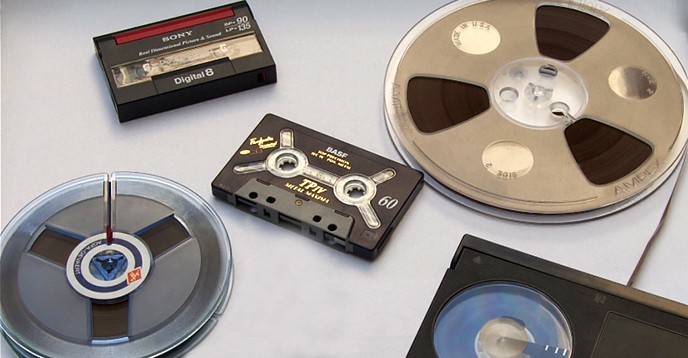Magnetic Tape Alert Project
Magnetic tape replay equipment is fading out!
An initiative of the Information for All Programme (IFAP) Working Group on Information Preservation
Downloads:
Magnetic Tape Alert Project report (version 1.1, 27th July 2020, PDF)
Questionnaire results (xlsx)
Today’s knowledge of the linguistic and cultural diversity of humanity is widely based on magnetic tape recordings produced over the past 60 years. Magnetic audio and video tape formats are now obsolete. Spare parts supply and service is fading, replay equipment in operable condition is disappearing rapidly, and routine transfer of magnetic tape documents is estimated to end around 2025. The only way to preserve these sounds and images in the long term, and to keep them accessible for future generations, is their digitisation and transfer to safe digital repositories.
 While many professional memory institutions have already secured their audiovisual holdings, or have planned to do so in time, a great part of audio and video recordings are still in their original state, kept in small academic or cultural institutions, or in private hands.
While many professional memory institutions have already secured their audiovisual holdings, or have planned to do so in time, a great part of audio and video recordings are still in their original state, kept in small academic or cultural institutions, or in private hands.
With the Magnetic Tape Alert Project, the Information for All Programme (IFAP) of UNESCO, in cooperation with IASA, the International Association of Sound and Audiovisual Archives, intends to alert stakeholders of the imminent threat of losing access to their audiovisual documents. Part of this is to conduct a survey of existing audiovisual documents on magnetic tape that are not yet digitally preserved. The survey focusses on unique recordings rather than copies.
The information obtained through the questionnaire on collections at risk will serve as a basis for the planning of adequate solutions for the safeguarding of these irreplaceable original documents in the long-term. Information gathered will be kept on the IASA website and will be used to compile a report that will be made publicly available. Names and addresses will be disclosed publicly only with permission.
UNESCO and IASA seek the assistance of associations and NGOs engaged in the study of contents typically recorded on magnetic tapes (music, endangered languages, folklore, rituals, dance, oral history, etc.) by alerting their members to the threat and to the project’s website at https://mtap.iasa-web.org
The Magnetic Tape Alert Project intends to assess the dimension of the threat. Although realistic measures to safeguard these yet unsecured collections by transfers to trusted digital repositories are only a second step, holders of such collections should not miss the opportunity to document their situation by filling in the questionnaire.
Dr Andrew Pace
MTAP Coordinator
mtap@iasa-web.org


